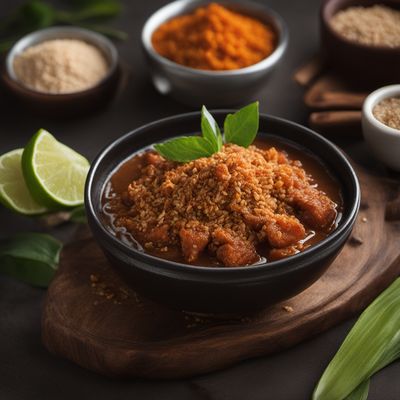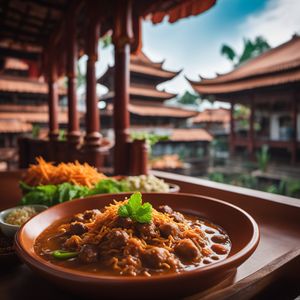
Dish
Binangkal
Binangkal is typically made with flour, sugar, baking powder, and milk. The dough is rolled into small balls and coated in sesame seeds before being deep-fried until golden brown. It is a sweet and crunchy snack that is often served with a cup of hot coffee or tea.
Origins and history
Binangkal is believed to have originated in the Visayas region of the Philippines. It is often sold by street vendors and is a popular snack among Filipinos. The name 'binangkal' is derived from the Visayan word 'bangkal', which means 'to roll into a ball'.
Dietary considerations
Binangkal contains gluten, eggs, and dairy products, and is not suitable for gluten-free or vegan diets. It may also contain traces of nuts.
Variations
There are many variations of binangkal, including those made with different types of flour or sweeteners. Some recipes also call for the addition of coconut milk or pandan leaves for added flavor. In some regions of the Philippines, binangkal is also filled with sweetened coconut or peanut butter.
Presentation and garnishing
To make binangkal extra fluffy, be sure to use fresh baking powder and to knead the dough until it is smooth and elastic. You can also add a pinch of salt to the dough to enhance the flavor. Binangkal is typically served on a plate or platter, garnished with additional sesame seeds or powdered sugar.
Tips & Tricks
When deep-frying binangkal, be sure to maintain a consistent oil temperature to ensure that the dough cooks evenly. You can also experiment with different coatings, such as shredded coconut or crushed peanuts, to add variety to the snack.
Side-dishes
Binangkal is typically served as a snack or dessert, and pairs well with hot coffee or tea. It can also be served with a side of sweetened condensed milk for dipping.
Drink pairings
Binangkal is best enjoyed with a cup of hot coffee or tea, which helps balance out the sweetness of the snack.
Delicious Binangkal recipes
More dishes from this category... Browse all »
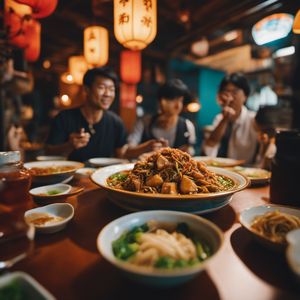
A-gei
Taiwanese cuisine

Abará
Brazilian cuisine
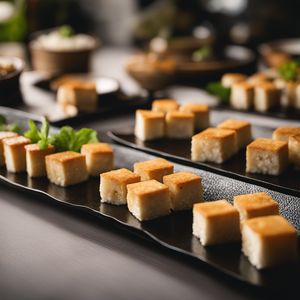
Aburaage
Japanese cuisine

Acciughe sotto pesto
Italian cuisine

Accra
West African cuisine

Aggala
Indian cuisine
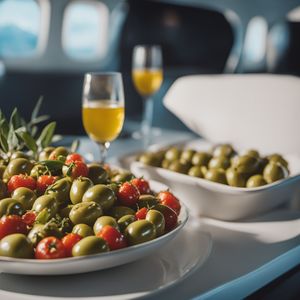
Airplane Olive
Greek cuisine
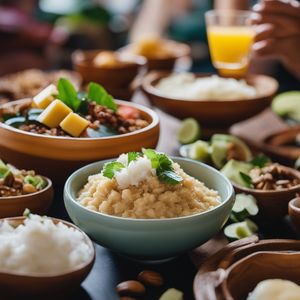
Alaisa fa'apopo
Samoan cuisine
